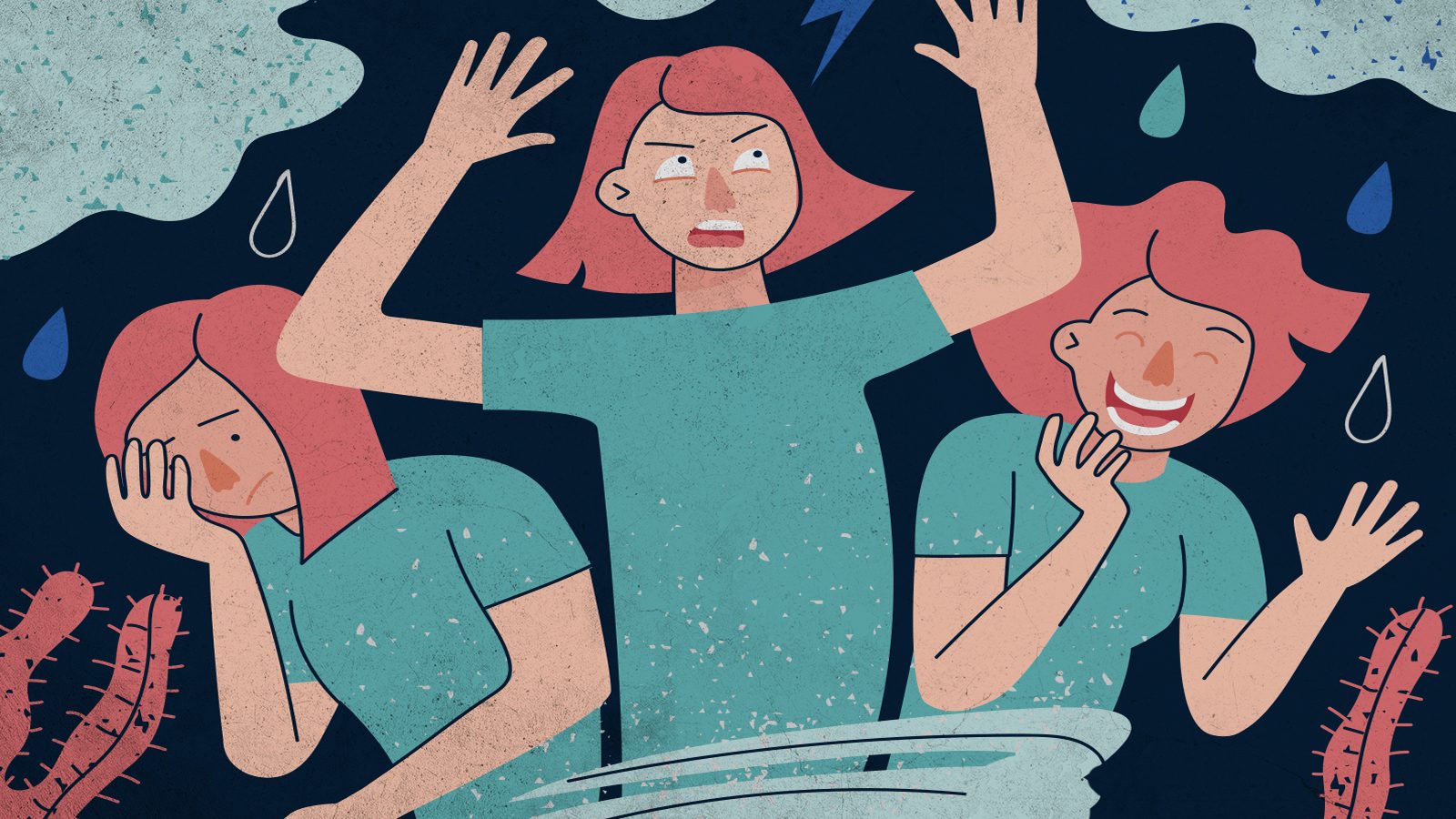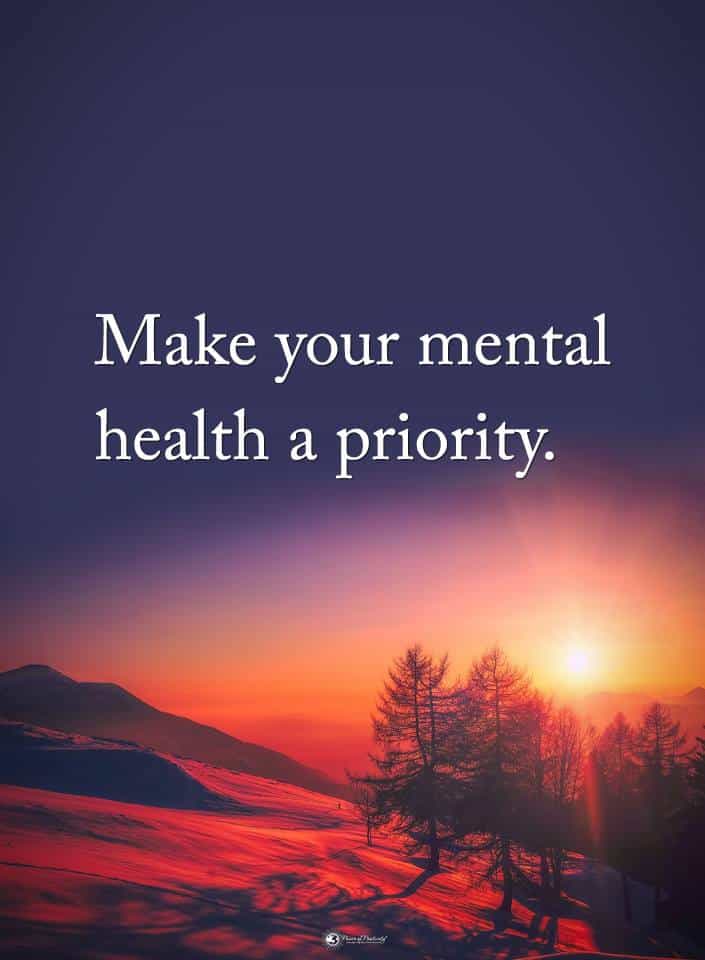Have you ever struggled with being all over the place emotionally? Or do you know someone else who’s dealing with that? Do you wish you could find a way to help yourself or other emotionally unstable people?
Emotional instability can be difficult to deal with, especially when you don’t know the signs. The behaviors of emotionally unstable people are erratic and unpredictable at times, so you have to be prepared to manage them. If you want to learn about some traits of emotional instability, keep reading.
What Is Emotional Instability?
Emotional instability (or affective dysregulation) often refers to the psychological condition that makes people experience rapidly changing moods. Strong emotions are felt by the people who suffer this condition. They might start uncontrollably laughing or burst out into tears. According to Ashley B. Hampton, Ph.D., it is centered around unpredictability in emotions and reactions to events. While most people experience a wide range of emotions, most people can manage them. But people who struggle with emotional instability will react to them in powerful ways.
The people struggling with this will also suffer from disruptive patterns of thinking. This mental illness can make them experience unusual things, feel out of place. And they are often bothered by upsetting thoughts.
Emotional instability is a psychological state that can occur to anyone. It is associated with mental illnesses like depression, anxiety, and trauma. The most extreme form of emotional instability can become a disorder. Best case, if you have mild symptoms, it means you have a personality with borderline traits.
Emotionally Unstable Personality Disorder (or Borderline Personality Disorder) is a personality disorder that causes emotional instability. It can cause many complications if left untreated. It can make you feel like you’ve lost control of your thoughts and emotions. You go through highs and lows that affect your health and make it difficult to connect with people.
The causes of EUPD are unclear. They seem to involve genetic, neurological, and environmental factors. Symptoms can develop as a result of not receiving the nurturing they need. It has been shown that it occurs more often in people who have an affected relative. Women seem to be three times as likely to have it than men. It is less common in order people.
4 Subtle Traits Of Emotionally Unstable People (And Ways To Fix It)
EUPD requires medical attention and close observation. Moreover, the signs might overlap with symptoms of other disorders, especially because some symptoms are less noticeable.
1. They React In An Unexpected Way
People who struggle with being emotionally unstable can sometimes react in unpredictable ways. Not only are the reactions are unexpected, but they also respond in inappropriate moments.
This can look like someone laughing in a tense moment, crying out of the blue, etc. This happens because the person loses control of their emotions. They can’t manage what they feel and when they feel it.
This happens because of dichotomous (all-or-nothing) thinking. They can rarely see the nuances in situations, which leads to splitting (inability to maintain a cohesive set of beliefs). One day they might think something is fantastic, and the next day they feel it is the worst ever.
Watch For Extreme Mood Swings In Emotionally Unstable People
If they experience rapid mood swings, they will have issues with self-soothing. Sherry Cormier, Ph.D., explains they lack the skills to calm themselves down. They can become overly reactive and respond to the slightest stimuli. They feel everything more intensely. That’s why their reactions might seem exaggerated at times. In their minds, it is appropriate, even though it doesn’t meet social expectations. But that’s just because they find everything hard to process.
People experiencing instability are also very impulsive. It takes a lot for them to take a step back and reflect. It’s much easier to act on whatever thought crosses their minds. They might appear to have poor coping and problem-solving skills. While being a little impulsive isn’t life-shattering, emotionally unstable people take it to the next level. They might break up with their long-term partner without notice, quit their job, and do other similar things.
Being empathetic and compassionate is the best way to help someone in this situation. Emotionally unstable people have a tough time controlling their emotions and are also tired of dealing with extremes daily. Please don’t make them feel like what they’re going through isn’t valid. That’s only going to make them think insane and isolated. Instead, focus on accepting them for how they are and soothing them when they’re going through mood swings. If you see that this behavior is a recurring theme, you might want to consult a specialist.
2. They Experience Rapid Shifts In Mood
Emotionally unstable people are prone to experiencing mood swings. But not just your run-of-the-mill mood swings; full-blown going from an extreme to another in a split second.
While all people get moody sometimes, it can feel like a rollercoaster of emotions for those who are emotionally unstable. They can get triggered by any little thing. A weird look from someone might set them off quickly. Sometimes it’s because they interpret something wrong, and they can get affected.
They can go from laughing and smiling to in a puddle of tears in a few minutes. And because they mostly experience extremes or numbness, the swing is quite visible. This greatly affects their well-being, as they have to feel opposing emotions quickly. They might even give up and go into states that some would describe as psychotic in some cases. This can shock the people around them. But it’s important to understand that you shouldn’t be afraid of the people battling this. Emotional instability is an enormous burden, and these mood swings are common.
If you see someone going through rapidly changing moods, be there to support them. Don’t get weirded out, don’t judge the person, and certainly don’t leave. Try to stay there and offer your emotional support. Get them what they need to calm down. In some cases, medication might help to keep them at a baseline. And if that’s not enough, therapy sessions might be a good try.
3. They Have Unstable Or Shallow Relationships
In many cases, emotional instability develops due to a lack of parental nurturing during a child’s early years. This can be neglect, abandonment, abuse, and more. It is because of this that they have unstable and shallow relationships later in life.
Emotionally unstable people are afraid they will be abandoned. Whether it is because of trauma, or other factors, that fear is real, making them shut themselves off. Additionally, they have to struggle with having a poor self-image. All of these factors create toxic behaviors.
Emotionally unstable people are known for being low on empathy. Their feelings are so much to handle that they must shut themselves off from feeling more. The fact that they have a poor self-image also makes them project their insecurities on others. Because they mostly feel extremes or nothing, most relationships they have are shallow. They are indifferent about those people and probably hang out with them because it benefits them somehow.
Emotionally Unstable People Have Instability
In the cases when the relationships aren’t shallow, they are very unstable. Because they’re afraid of being abandoned and isolated, they can desperately cling to certain people. They tend to idealize people and hold them to unattainable expectations. They are terrified of rejection, so they will cling to you for dear life. Because of their instability, they swing between admiring and denigrating people. And anything can set them off. They are so easily hurt or insulted that one wrong step might make them mad. This is why relationships can become very rocky. If you’re in a romantic relationship with an unstable person, don’t be surprised to break up and make-up often.
If you notice any signs, try to have their best interest at heart. Your relationship might be shallow and unstable, but they might still need you to guide and help them. Be close to them, but not too tight. If you see that they start to idealize you, pull back. If they don’t get the treatment, they won’t be in the right place to have serious relationships.
4. They Run From Their Problems
As a result of low self-esteem and inability to control their feelings, emotionally unstable people tend to run away from their problems. They fear commitment and responsibility, so they often decide to detach from any promises they make.
If they have to fix something in the house, they procrastinate as long as possible. They don’t care about everything being in order, and sometimes they don’t have the energy to fix everything. Their whole lives are so chaotic that they don’t know how to escape them. And they keep putting themselves in new, more chaotic situations.
Sometimes they don’t even acknowledge they have an issue and don’t listen to anyone trying to help them. If you suggest they change something, maybe get their finances sorted out, they’ll freak out and think you’re looking down on them. This, coupled with low empathy, makes them refuse to admit that they must deal with certain things.
If you’re dealing with someone like this, try offering them a helping hand rather than pointing out their flaws. Boost their morale, don’t just go around judging them.
Final Thoughts On Subtle Traits Of Emotionally Unstable People (And Ways To Fix It)
Having to deal with emotional instability can be maddening. So, if you know a person dealing with this, all you can do is be there for them to offer emotional support.
They have to deal with so much daily, from mood swings to acting weird, and running from their problems. They go from one emotional extreme to the other in a split second. In severe cases, this can even become a personality disorder. As a friend, you can be supportive and help them calm down when they’re feeling suffocated by their emotions. You can suggest they go to therapy and try CBT or medication if things worsen.

















 Community
Community

